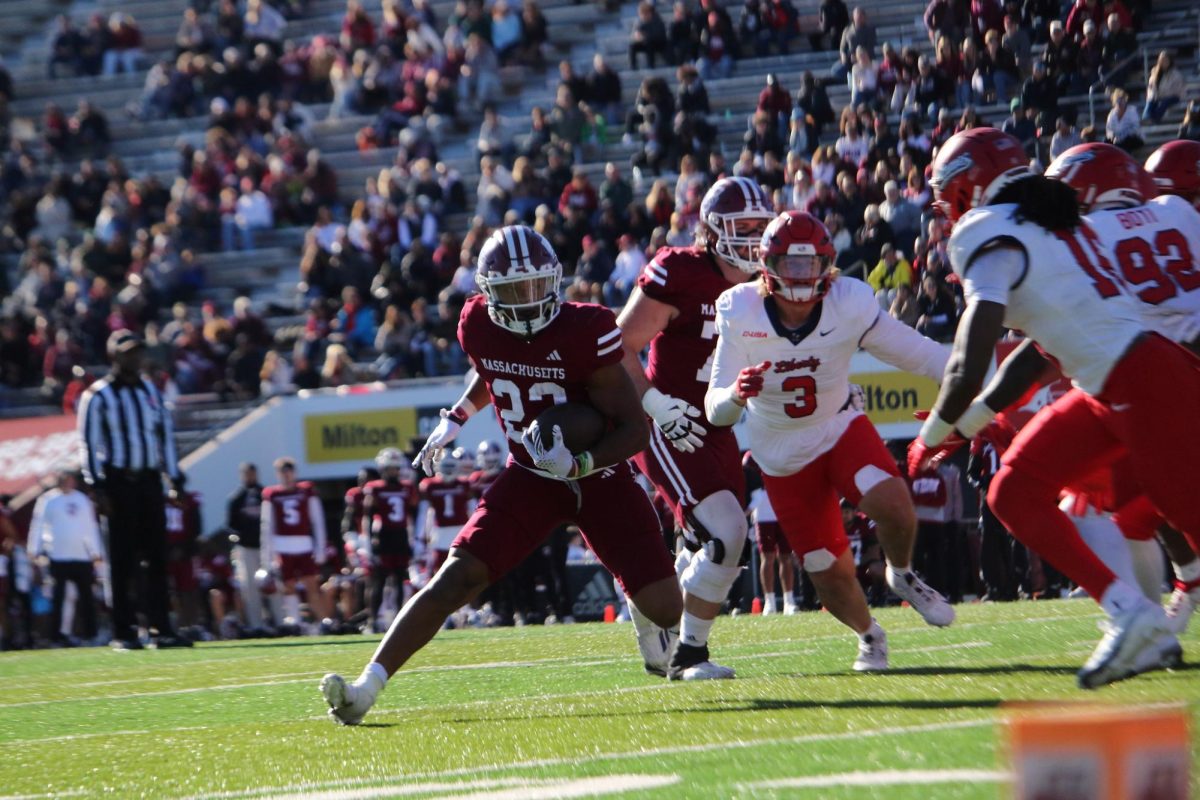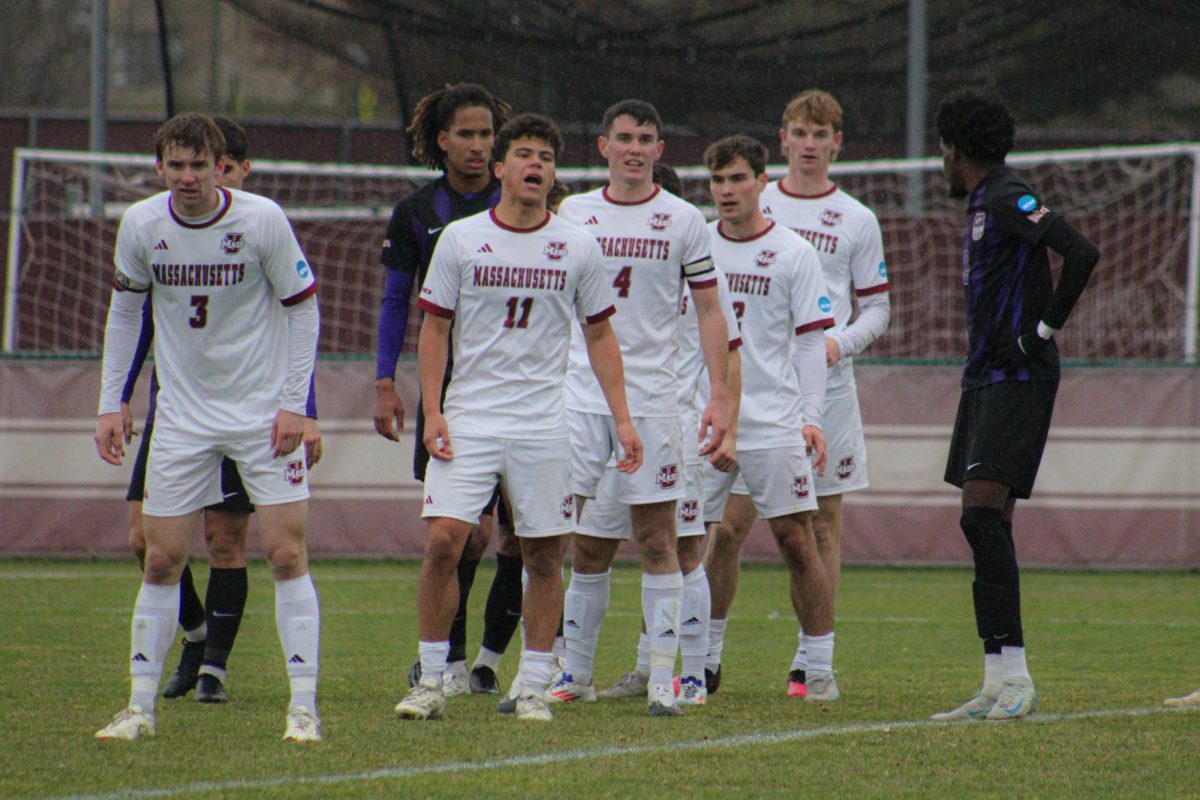Ask any elementary school girl about her current thoughts on the Backstreet Boys and get ready to receive a snippy “Nobody listens to them anymore” line. Ah, the beauty of teen pop. Here today, gone tomorrow.
For the past five years, whether in music, movies or TV, teenagers have been the rulers of the entertainment kingdom. Risky industry endeavors geared at teens, made easier by a booming economy, became instantly successful and translated to a multi-billion dollar industry.
But 2001 has seen a slow crumbling of the industry’s core audience and critics have consequently been quick to proclaim teen pop has gone boom.
SCREAM SCARES UP TREND
Spurred by a booming economy and a growing number of teens (31 million and counting) the late ’90s became a breeding ground for all things bubblegum.
Scream, the Kevin Williamson-directed slasher flick, first kicked off the trend by grossing an impressive $103 million and spawning two sequels and countless teen genre flicks. High school love stories like She’s All That ($63.4 million) and gross-out tales such as American Pie ($102.6 million) also cashed in on the ever-growing trend. “Party of Five” alum Jennifer Love Hewitt (remember her?) became the princess of all things pop in 1997 with the release of several films, most notably I Know What You Did Last Summer (72.6 million). By the end of 1997, teens had even sailed choppy seawaters making Titanic the highest-grossing movie of all time (anchoring in over $600 million in the States alone!).
The TV domain couldn’t escape the trend either. “Buffy” slayed the competition and created a teen girl powerhouse transforming the WB into a credible network. In 1998, “Dawson’s Creek” became the WB’s highest rated program (and kissed “90210” goodbye!). The Carson Daly hosted “TRL” debuted in Sept. 1998 and quickly became MTV’s highest rated show.
And who could forget the music world where countless acts have transformed the charts into a veritable bubble-gum blowing, peach-fuzz sporting, midriff-baring playground? The Spice Girls added Spice to the music world in early 1997 (selling over 7 million units domestically). Hanson followed months later with the irresistibly catchy “MMMBop.” After years of European success, America finally quit playin’ games with their hearts and embraced the Backstreet Boys (a total of 35 million albums sold to date). We wanted it that way – the pop way that is. ‘NSync later tears it up (23 million) and Britney Spears hits us for the first time (22 million).
And the rest is history.
TEEN POP GOES BOOM?
But the fickle audience of teens burst these bubbles as fast as they blew them. Valentine, released earlier this year ($20.4 million), Summer Catch ($19.5 million), and Freddy Got Fingered ($14.2 million) failed to muster much teen appeal.
ADD-afflicted teens also alienated the aforementioned TV shows, including “Felicity.” And new teen TV shows failed to successfully materialize last season as evidenced by the cancelled “Popular” and “Grosse Pointe.”
Perusing this week’s charts it looks like teen pop’s existence is truly fading. The only act to bubble under the top 20 Billboard Album chart is ‘NSync with Celebrity. But even the biggest boy band in the world has experienced some fan alienation. No Strings Attached, the precursor to Celebrity, sold a record setting 2.4 million units in one week. When Celebrity arrived this past summer, it moved 1.88 million units – a respectable number by any measure, but falling short of the staggering No Strings Attached figure.
‘NSync’s satirical lyrics in Celebrity’s lead-single “Pop” truly brought the “Is teen pop over?” question to a forefront this summer. Timberlake, resident ‘NSync hottie and Britney’s beau, protested to bitter critics “The thing you got to realize, what we’re doing is not a trend/ We got the gift of melody, we’re gonna bring it ’til the end.” Critics laughed off the battle cry while lauding the polished boy band for bringing the two-step beats to the states.
Backstreet Boys may be the most pitiable off all. The group kick started the boy band movement only to be overshadowed by larger-than-life arch nemesis ‘Nsync and experience a sharp decline in sales. Their last album, Black and Blue, sold 5.2 million copies, hardly comparable to the 12 million units raked in by predecessor, Millennium. Feeling the bruises, the group downscaled its current tour from stadiums to arenas. AJ’s admittance into a rehab center over the summer for depression and alcoholism further flung the band into veritable darkness. Their inevitable demise is undoubtedly the reason the boys’ record company Jive is trying to cash in one last time by issuing a greatest hits compilation album due Oct. 30.
Plunging sales of teen albums, poor audiences at teen-themed movies and diminishing ratings for teen-centered TV shows have prompted the question on everyone’s collective mind, is teen pop over?
As teen stars grow older and teen pop fans get wiser, a change of love for the mushy art form may occur. Countless articles have been written by entertainment and music critics alike (many eagerly), proclaiming the death of teen pop. In fact, Entertainment Weekly devoted an entire cover story to the subject matter this summer, nearly swinging the last gash to the suffering market.
Although the layman’s pop-culture bible admitted teens are an ever-growing population, it stated that the voice of teens has changed, and it will no longer cheer for the same sticky bubblegum formulas.
But earlier this year, the MTV-produced Save the Last Dance earned $89.4 million, Legally Blonde and American Pie 2, respectively, took a huge bite out of the box office this summer, grossing $93.9 million and $143.2 million (and counting) – all opposing the current mindset that the teen movement is over. Furthermore, Buffy’s new home on the UPN helped Sarah Michelle Gellar sink her teeth into larger ratings. And anticipation of Britney Spears’ new self-titled album due next month continues to mount.
WHAT HAPPENS WHEN TEEN POP GOES BUST?
Even if the teen phenomenon is breathing its last breath, where does entertainment go from here? Uncertain economic times (also marked by the Sept. 11 tragedy) may translate to gloomy grunge, much in the way the early-’90s recession ignited the melancholy art form. Or maybe a hip-hop fusion that continues to quietly grow more popular will emerge? Even less doubtful, what if Michael Jackson’s highly hyped Invincible album turns out to be a present day music-changing Thriller?
Don’t turn to the Billboard charts for any answers. Topsy-turvy taste has grown abundant on the charts this past year. The year 2001 stands as one of the most lackluster years in entertainment in recent memory. Compared to previous years, no movie has made a significant cultural impact, no music star has hit it big (with the arguable exception of Alicia Keys) and no TV show has experienced any surge in ratings. As publicity campaigns continue to be downscaled amid the Sept. 11 terrorist activities, it’s unlikely any contribution to pop culture will make a significant splash.
Even if the entire teen trend derails, there’s no one consensus that states that the pop starlets affiliated with the phenomenon will be tossed into utter obscurity. Who knows, maybe Britney will be the next Madonna or Justin the next Michael Jackson.
In any case, there’s no question to who rules the entertainment roost-teens. With the cash and time to burn, these zit-faced, hormonally charged pre-pubescent teens will continue to dictate what is popular. However, much to the chagrin of frustrated, money-hungry Hollywood, small screen, and record label executives, future prognoses of these ephemeral-minded culprits are nearly useless.






